
BACHELOR’S DEGREE PROGRAMME




The Engineering Science Programme (ESP) at NUS, a collaborative initiative by the College of Design and Engineering and the College of Humanities and Sciences, offers an integrated approach to engineering and technological education grounded in scientific and mathematical principles.
This programme equips students with solid foundations in physics and mathematics, enabling them to tackle engineering challenges in fields such as nanoscience, energy systems, computational engineering and medical systems. ESP emphasises handson experimentation underpinned by scientific rigour, preparing students for careers in both industry and academia.
Facing future engineering challenges requires engineers to be adaptable, versatile and multi-disciplinary. ESP at NUS is designed to prepare students for such challenges, building confidence through hands-on projects and providing a deep understanding across disciplines including electronics, mechanics, physics, mathematics and computing.
Through design projects, students engage in individualised problem solving, while advancedlevel courses in mathematics and physics provide the scientific basis for multi-disciplinary research and development.
Graduates are well-prepared for diverse careers, having secured various positions across industries and government, or embarked on entrepreneurial ventures. The programme’s specialisations align with postgraduate opportunities in the departments of Mechanical Engineering, Electrical and Computer Engineering and Physics, ensuring relevance and career prospects.
• Computational Engineering Science: Focuses on developing predictive models and simulations using mathematics, physics and mechanics. These methods are widely used in the visualisation and computation of complex scientific and engineering problems.
• Energy Science and Technology: Critical for addressing both renewable and non-renewable energy sources, this specialisation covers the production, conversion, storage and management of energy to enhance efficiency and urban sustainability.
• Engineering Science in Medicine: Prepares future engineers and scientists to develop healthcare and medical instrumentation, ranging from diagnostic sensors to large-scale technologies such as focused ion beam rings in cancer therapy.
• Nanoscience and Technology: Enables the creation of materials and systems at the nanometre scale for applications in construction, electronics and medicine, leading to innovations like stronger materials and specialised medical devices.
ESP graduates find opportunities across sectors:
• Computational Engineering Science roles in organisations such as DSO, Micron Semiconductor Asia Pte Ltd and Strategic lnfocomm & Technologies.
• Energy Science and Technology roles at Schlumberger, Schneider Electric and SIA Engineering.
• Engineering Science in Medicine careers with companies like Bruker, Zeiss and Shimadzu.
• Nanoscience and Technology careers at Applied Materials, KLA, Merck, Micron and SIMTech.
Internship Opportunities
ESP students have had internships at various companies, including but not limited to:
• A*STAR
• DSO National Laboratories
• Home Team Science & Technology Agency (HTX)
• ST Engineering
• Helios Applied Systems Pte Ltd
• Health Sciences Authority (HSA)
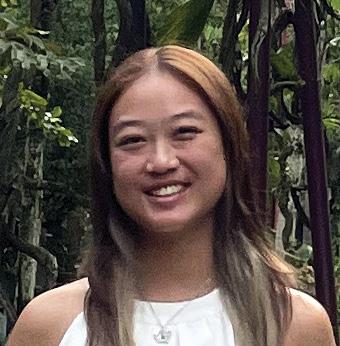
Cheah Jing Qian
Bachelor of Engineering (Engineering Science), Class of 2027
Specialisation in Energy Science and Technology
Minor in Innovation & Design (iDP)
“The journey in the Engineering Science Programme (ESP) at NUS has been exceptional, exceeding expectations and enhancing student life. The strong network of friends, peers, and professors within the tight-knit ESP community fosters a sense of camaraderie and belonging. Collaborative learning through group projects and hands-on experiences enrich the educational experience, allowing mutual support among peers. Leadership roles, such as serving as President of the 19th Engineering Science Student Wing, and participating in global programmes, have provided opportunities for interaction and exposure to diverse cultures. Cherished memories include the joyful and supportive learning environment with a small cohort, highlighting the importance of community and shared experiences in the ESP journey.”
Muthukumaran Yogeeswaran
Bachelor of Engineering (Engineering Science), Class of 2026
Specialisation in Computational Engineering Science
Minor in Innovation Design
Programme and Computing (CDE)
“Despite some uncertainties about my future and where ESP might lead me, my journey so far has been a testament to the saying ‘jack of all trades, master of none, but oftentimes better than master of one.’ From designing bridges in SolidWorks to wiring circuits and programming robots, each experience has enriched my breadth of skills. Each semester brings new challenges and opportunities for growth, reinforcing my versatility. Paired with the Innovation Design Programme (iDP), I can pursue my passion for robotics on a strong foundation. Alongside the friendships in this close-knit cohort, I have no regrets choosing ESP and would confidently choose this path again.”
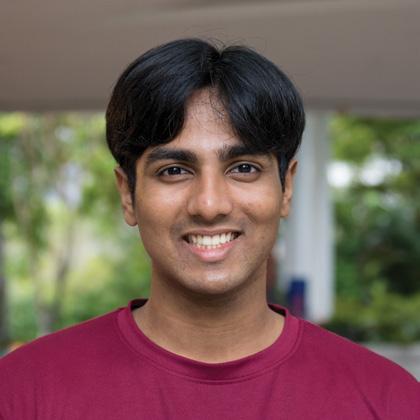
Vernice Oh Yuqi
Bachelor of Engineering (Engineering Science), Class of 2025
Specialisations in Nanoscience and Technology and Computational Engineering Science
Minor in Physics
E-Scholar
“During my time in ESP, on top of the physics and engineering background instilled by the core courses, I have gained valuable insight and knowledge regarding my fields of specialisation: Nanoscience and Technology and Computational Engineering Science. Although the course material was somewhat challenging at times (especially the project-based courses), I believe that learning “on-the-job” is one of the ways to apply and cement the theory we learn in class, testing our understanding and honing our practical skills. This was certainly highlighted during my semester-long research project with the Centre for lon Beam Applications (CIBA) in NUS, where I applied nanofabrication techniques in an attempt to fabricate a Resolution Standard for the lon Beam. In my first year, I had the opportunity to participate in a Summer Exchange Programme to the University of Oxford. The experience was extremely fruitful, with knowledgeable passionate professors tutoring in many fields of interest. I also had the opportunity to meet many international students from diverse backgrounds and universities such as Yale, University of California, and Harvard.”
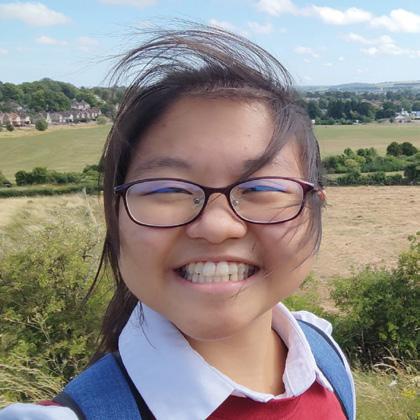
Jaymi Mae Lim
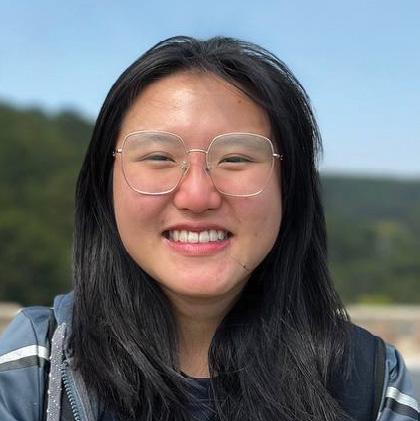
Bachelor of Engineering (Major: Engineering Science/Second Major: Innovation & Design), Class of 2024
Specialisation in Computational Engineering Science
“My experience as an Engineering Science student has been quite an adventure. Other than the holistic education I received, I also had the chance to engage in a vibrant student life both in CDE and Tembusu College which broadened my perspectives and honed my leadership skills. The programme’s emphasis on questioning norms fuelled my exploration in the real-life applications of artificial intelligence and machine learning, aligning with my passion for innovation. I had the opportunity to embark on the NUS Overseas Colleges six month-long programme to Vietnam, one of the fastest growing economies in Southeast Asia, where I applied skills such as critical thinking and adaptability learnt through the programme. NUS has not only equipped me academically but also provided unique opportunities, shaping me into a forward-thinking engineer prepared for the everchanging tech industry.”
You’ll dive into the exciting world of engineering science with a handson approach, exploring fundamental concepts like mathematics, programming, and design. You’ll build and test your own earthquake-resistant tower, learning about forces in structures and dynamics, while also creating a scaleddown industrial dryer to explore heat and mass transfer principles. You’ll also work with sensors, creating circuits to translate signals into digital data, giving you practical experience in integrating hardware with software and enhancing your problem-solving skills.
You’ll undertake a term-long industrial internship, applying your skills to real projects. You’ll explore continuum mechanics, designing solutions like large-scale air delivery systems with computational simulations. Delve into quantum physics, from atomic spectra to semiconductors and lasers, while deepening your electromagnetics knowledge to strengthen your engineering foundation. Specialise in areas such as nanoscience or energy science, or pursue a minor or second major in fields like Physics or Data Analytics.
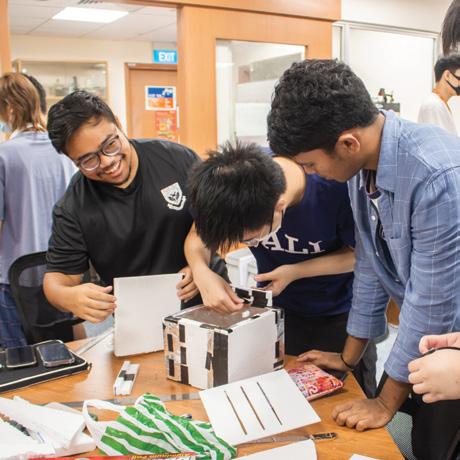
You’ll delve deeper into advanced topics like numerical methods, thermodynamics, physics, design, and machine learning. You’ll work on cutting-edge projects, such as developing a digital bioimpedance probe for skin cancer detection and applying machine learning techniques to solve real-world problems. You’ll explore the fascinating world of solid-state physics, from crystal structures to semiconductor physics, while also tackling hands-on design projects. These include building a path-following robot using control theory and assembling a scanning tunnelling microscope, blending theory with exciting practical applications.
You’ll undertake a year-long project, either in academic research or a development project with a company, tackling real-world engineering challenges. Collaborate in small teams on a major design project, creating prototypes to address complex problems. Through an iterative design process, you’ll refine your ideas based on feedback, applying engineering principles and focusing on user needs. This year concludes your multidisciplinary journey, with a strong focus on physics, mechanical, and electrical engineering, preparing you for your next chapter!
Singapore-Cambridge GCE ‘A’ Levels
A pass in H2 Mathematics or Further Mathematics.
Polytechnic Diploma
An accredited diploma.
International Baccalaureate (IB) Diploma
A pass in HL Mathematics: Analysis and Approaches.
NUS High School Diploma
A good major GPA in Mathematics.
International Qualifications
Applicants presenting international qualifications may apply with equivalent high school results.
